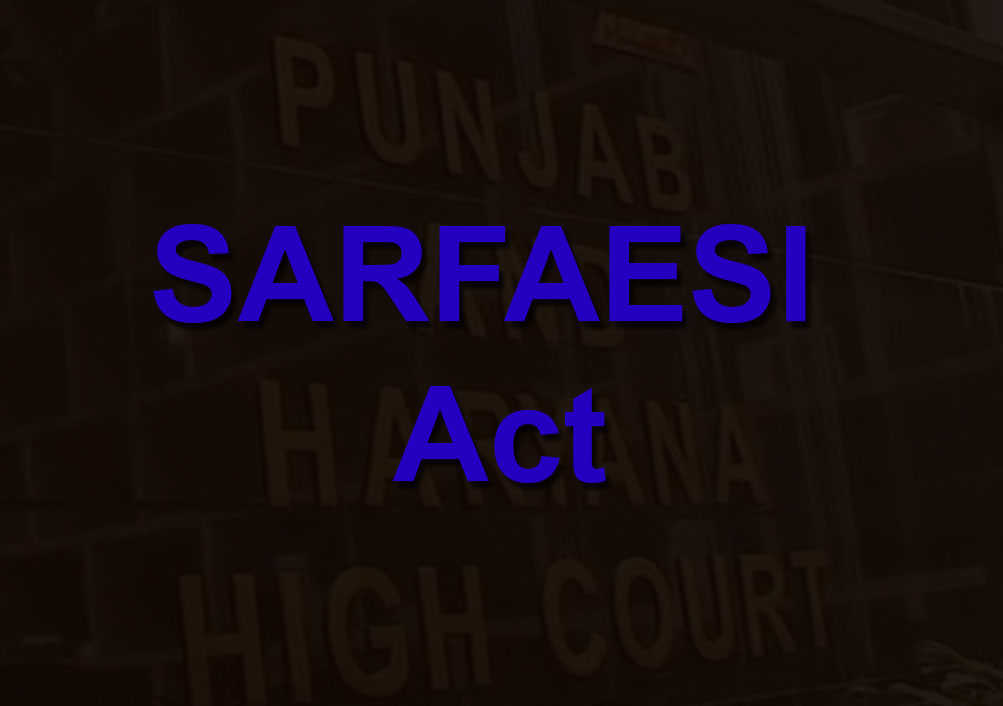Mere failure of creditor in giving reply to objections raised by borrower though otherwise considered does not invalidate SARFAESI Proceedings: SC

Read Judgment: Arce Polymers Private Limited vs. M/s. Alphine Pharmaceuticals Private Limited & Others
Pankaj Bajpai
New Delhi, December 6, 2021: The Supreme Court has recently opined that if a borrower does not object to the action of creditor and accepts favourable decisions from creditor, then later, the borrower would be estopped from taking inconsistent position to gain advantage through judicial proceedings.
A Larger Bench of Justice L.Nageswara Rao, Justice Sanjiv Khanna & Justice B.R. Gavai therefore observed that mere failure of a creditor in giving reply to objections raised by a borrower though otherwise considered, does not invalidate SARFAESI Proceedings.
The observation came pursuant to an appeal that was preferred by M/s. Arce Polymers Private Limited (Second Purchaser) who had purchased the property from the original auction purchaser, namely, Basa Chandramouli; and by the Bank.
The judgment restored the physical possession of the Subject Property to the Borrower, recording that the secured creditor, Bank, was at liberty to act, in order to recover its dues from the Borrower, strictly in accordance with the SARFAESI Act and the Rules.
The Borrower was sanctioned a working capital limit of Rs.35,00,000/- and granted a term loan of Rs.1,52,00,000/- by the Bank to enable the Borrower to purchase M/s. Alphine Pharmaceuticals Pvt. Ltd. from its promoters. Accordingly, the Subject Property was mortgaged by the Borrower with the Bank. Since the Borrower failed to repay the loan, the Bank issued notice to the Borrower u/s 13(2) of the SARFAESI Act. Later on, the Bank issued notice u/s 13(4) of the SARFAESI Act.
The Borrower approached and filed a petition before the Debts Recovery Tribunal (DRT) challenging the enforcement proceedings in respect of the Subject Property including all steps taken right from issue of notice u/s 13(2) of the SARFAESI Act. The Debts Recovery Tribunal, Hyderabad dismissed the Borrower’s application, holding that the Bank had followed the prescribed procedure under the SARFAESI Act and the sale was valid.
Thereupon, the Borrower preferred a writ before the High Court of Telangana, which quashed the proceedings initiated by M/s. Andhra Bank for sale of the mortgaged asset (Subject Property) as being in violation of the SARFAESI Act.
After considering the arguments, the Larger Bench found from a bare perusal of the letter dated November 7, 2016 sent by the Bank to its Zonal Manager that the Bank actively considered the Borrower’s request for extension of the moratorium period.
“The Borrower did not submit the viability report and failed to bring in Rs. 45,00,000. Post this default also, there were negotiations with assurances and promises by the Borrower. Displaying forbearance, the Bank granted indulgence as action under the SARFAESI Act was deferred for nearly one year from 7th November 2016 till 6th October 2017. Thereafter, negotiations were held on 30th October 2017, 6th November 2017 and 8th November 2017”, observed the Bench.
Speaking for the Bench, Justice Sanjiv Khanna noted that the email dated November 30, 2017 addressed by the Bank to the Borrower highlighted the dilatory and tricky approach of the Borrower as it had failed to submit details of the additional collateral security offered along with the legal opinion and the engineer’s valuation report.
Even visit to the proposed collateral security property was not arranged, and the Borrower again tried its luck and submitted a restructuring proposal via a communication dated December 18, 2017, but this did not fructify into an acceptable settlement, added Justice Khanna.
Thus, the Apex Court said that the Bank having lost faith could not rely on the Borrower, and only thereafter, the Bank proceeded with the auctions under the SARFAESI Act on March 28, 2018 and June 14, 2018, however, then also the borrower then kept silent.
As the earlier auctions failed, the Bank issued a notice dated August 20, 2018 informing the Borrower about the fourth auction to be held on September 11, 2018 at a reduced reserve price, added the Court.
Taking into consideration the entire facts of the case, which perspicuously reflected the disingenuous conduct on part of the Borrower to gain indulgence, unfulfilled assurances and promises, their unwillingness to pay,the Larger Bench opined that the Borrower has waived and is estopped from challenging violation of Section 13(3A) of the SARFAESI Act.
Given the said position, there is no necessity to examine the second point, i.e. whether in an application u/s 17 of the SARFAESI Act, which can be filed when a Borrower is aggrieved by any of the measures referred to in sub-section (4) to Section 13 within forty five days from the date such measures are taken, the Borrower can challenge other measures, steps and procedures which preceded the ultimate sale even if barred by the limitation period of forty five days, added the Bench.
Hence, the Top Court upheld the order passed by the DRT confirming the procedure and sale of the Subject Property under the SARFAESI Act.
Sign up for our weekly newsletter to stay up to date on our product, events featured blog, special offer and all of the exciting things that take place here at Legitquest.




Add a Comment